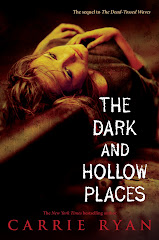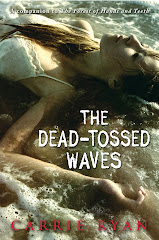Wednesday, January 23, 2008
Writing with Fear
Last night my local bar (the lawyer type of bar, not the drinking kind) had it's first ever writers meeting. JP is the one that saw the announcement for it and we were both really excited and really curious. I've been trying to figure out if there's a writing scene in my city for a while (to no avail) and suddenly, not only is there a writers group, but one specifically for local attorneys! JP and I weren't sure what we'd find when we showed up -- would it be just the two of us, the special guest (Salisbury NC author and NYT bestseller John Hart) and the organizer?
We were both surprised to show up and find that we had to move to a larger room because there was so much interest (maybe 15 people in all). The group is a collection of poets, short stories writers and novelists (both fiction and one non-fiction). Two had MFAs, a few had published short stories and I was the only contracted novelist. What was strange was to realize that I spend so much of my time around writers that are totally plugged into the community (you guys) that I'd forgotten just how much knowledge I take for granted about writing and the industry. All the writers I chat with on a daily basis know what a query letter is, how rejections work, how the process works, how long novels tend to be. Suddenly, I was in a group of people who had no idea and oddly, it was wonderful. Because I love sharing what I know and I realized that I can answer so many of their questions and be helpful!
But I ramble, that's not the point of this post. The point is that the main speaker, John Hart, was a very interesting speaker. One thing he talked about was writing with fear and faith. Fear that what you're writing may not be good enough and faith that it is.* He said that it's only when you're writing from a state of fear that you truly write -- that you truly dig in deep and get to the heart of things.
At first, I was skeptical of this. But then I thought about my own work. There's one scene in particular in FHT that when I was writing it I cringed. I thought "oh, this isn't going to go over well." Seriously, when I finished the scene I laughed in that "am I crazy?" way because I'd really pushed the envelope. I was afraid that readers would think it was too much -- I'd pushed too far, it was too out there. But they didn't, they all responded very well. Shocked maybe, but it worked.
And then I thought of another work I read recently. The author was worried that a scene might be too much. But when I read it was amazed -- shocked in that wonderful way you get when an author has truly nailed something. Encapsulated a scene in that perfect way, and in a way that is truly no-holds-barred.
In both instances, there were other ways to write those scenes. Ways that both I and the other author wouldn't have to worry, "is this ok? Is this too much?" But I don't think that would have been as powerful.
Yes, sometimes what you write can be too much -- too edgy. But I think it's better to overshoot and tone it down rather than not make the mark at all. Also, I agree that sometimes, if you write from a state of too much fear the opposite happens: you play it safe, fail to take the risks necessary -- scared into writer paralysis.
How to find the balance? No idea. I think that's sometimes why having CPs and early readers can be such a good help. You can take those risks, push the edge in ways that make you scared and then you can have others help to buoy your faith, to let you know if you've gone too far.
It's hard advice, I think. Essentially he was saying that if you're embarrassed by what you're writing, you're probably doing well. My problem with that is that it's no fun being embarrassed by what you write. But then again, I'm the one who wrote a literary zombie YA book and then sent it out to friends to critique -- talk about embarrassing! I was terrified that my CPs would write back with a pat on the head and a "better luck next time *coughfreakcough*" So maybe he has a point.
What do y'all think?
* This is the way I heard and internalized what he said. I really hope I'm not taking his comments out of context and if I did, I apologize.
We were both surprised to show up and find that we had to move to a larger room because there was so much interest (maybe 15 people in all). The group is a collection of poets, short stories writers and novelists (both fiction and one non-fiction). Two had MFAs, a few had published short stories and I was the only contracted novelist. What was strange was to realize that I spend so much of my time around writers that are totally plugged into the community (you guys) that I'd forgotten just how much knowledge I take for granted about writing and the industry. All the writers I chat with on a daily basis know what a query letter is, how rejections work, how the process works, how long novels tend to be. Suddenly, I was in a group of people who had no idea and oddly, it was wonderful. Because I love sharing what I know and I realized that I can answer so many of their questions and be helpful!
But I ramble, that's not the point of this post. The point is that the main speaker, John Hart, was a very interesting speaker. One thing he talked about was writing with fear and faith. Fear that what you're writing may not be good enough and faith that it is.* He said that it's only when you're writing from a state of fear that you truly write -- that you truly dig in deep and get to the heart of things.
At first, I was skeptical of this. But then I thought about my own work. There's one scene in particular in FHT that when I was writing it I cringed. I thought "oh, this isn't going to go over well." Seriously, when I finished the scene I laughed in that "am I crazy?" way because I'd really pushed the envelope. I was afraid that readers would think it was too much -- I'd pushed too far, it was too out there. But they didn't, they all responded very well. Shocked maybe, but it worked.
And then I thought of another work I read recently. The author was worried that a scene might be too much. But when I read it was amazed -- shocked in that wonderful way you get when an author has truly nailed something. Encapsulated a scene in that perfect way, and in a way that is truly no-holds-barred.
In both instances, there were other ways to write those scenes. Ways that both I and the other author wouldn't have to worry, "is this ok? Is this too much?" But I don't think that would have been as powerful.
Yes, sometimes what you write can be too much -- too edgy. But I think it's better to overshoot and tone it down rather than not make the mark at all. Also, I agree that sometimes, if you write from a state of too much fear the opposite happens: you play it safe, fail to take the risks necessary -- scared into writer paralysis.
How to find the balance? No idea. I think that's sometimes why having CPs and early readers can be such a good help. You can take those risks, push the edge in ways that make you scared and then you can have others help to buoy your faith, to let you know if you've gone too far.
It's hard advice, I think. Essentially he was saying that if you're embarrassed by what you're writing, you're probably doing well. My problem with that is that it's no fun being embarrassed by what you write. But then again, I'm the one who wrote a literary zombie YA book and then sent it out to friends to critique -- talk about embarrassing! I was terrified that my CPs would write back with a pat on the head and a "better luck next time *coughfreakcough*" So maybe he has a point.
What do y'all think?
* This is the way I heard and internalized what he said. I really hope I'm not taking his comments out of context and if I did, I apologize.
Subscribe to:
Post Comments (Atom)
















4 comments:
Love this post! I write like that alot. Part of the time, I'm thinking, this is really good stuff and then part of the time (most of the time)I'm thinking, no one is going to like this.
Pushing the envelope is hard to do when you realize that family members and so forth are going to read it once published. That thought alone held me back in the beginning, but then I decided what the heck, this is the direction of the book so go with it.
I know where you're coming from -- it's hard to think about family reading your work. I never wanted them to read my first two books and they never have -- not even my boyfriend.
My recent one felt different -- once I got the "this is good" from CPs I felt a lot better about letting my family read it. I think they were almost more scared than I was! They weren't sure if I had talent or anything. And then almost every one of them read it in a day -- couldn't put it down. That was the best ever!
I used to be defensive about my writing, only wanting to show something that was A. unoffensive in any manner and B. in my mind, ready for publication. Rarely anything makes it to B. so, I prety much hated sharing.
One workshop I had to write a short story about my greatest fear. I wrote a story about a young couple who lost a young child in a car accident, which lead to the eventual end of the couple.
My greatest fear is losing my family. That was a hard story to share with anyone. My mom read it, and there was a grandmother in the story. My mom was reading WAY to much into it. Took several days of "IT'S JUST A STORY!!!!"
Now, I pretty much don't care. I don't even care if I spell things right.
This is really good to know, because I am in a total state of fear over my latest project... it's a book that makes me very uncomfortable and embarrassed and I wrote it. So maybe it looks like I'm doing something right????!!!
I agree with what Vicki said above. I still don't think I'll ever let my family members read it.
Post a Comment